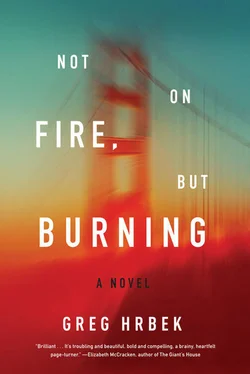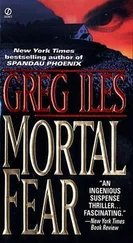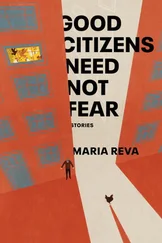“Hey.”
Turning. And Omar, from the door of the kitchen, saying: “Dude, time to hasten to the remembrance of Allah.” As if prayers and God are a joke.
When they get there, a recording of the azan is playing over the parking lot. Karim and Omar go through the men’s entrance. Mrs. Mahfouz falls in behind a couple of grandmothers in long shapeless robes. The hall is on the second floor. They climb the stairs together and remove their shoes together. But as soon as Omar puts his loafers on the shelf, he leaves Karim there, on one knee, untying his laces. When he finally walks in, the musalla is half-full: maybe a hundred men and boys doing their rak’ahs. Karim takes a rug from the pile. Omar off to the left. Beside him: one of the other boys who was at the pool party. Don’t. Don’t make a fool of yourself. Go to the middle of the room. By yourself. Say your prayers. (To one side of you, a guy in a Yankees jersey; to the other, an older man in a dishdasha.) Bow, kneel, touch your forehead to the rug — and after the second cycle of prayer, waiting now for the arrival of the imam and the start of the service, survey the hall: Omar and the other one whispering and joking; the mothers and girls and the littlest children roped off in the back. Maybe two hundred people now. Not just Arabs, but lighter-skinned Middle Easterners and dark-skinned Blacks. Even a white man. Whom you can’t help but stare at and be suspicious of.
Watch him lower his head to the floor. As he does so, the person just in front of him and to his right will come into view:
A boy.
The resemblance in profile so strong you would swear … Then he turns, to his left and back, where you are — and you squinting in disbelief. But it is . It’s Yassim, making a face that seems to say: Oh, there you are.
Dorian down arrows until he is back at 2:09 a.m. UNKNOWN CALLER . And there is the number. An area code unrecognized. Why talk to him? Not because he wants to. Only because he has to. Because what if his neighbor, the doctor, is right? Last night, a couple of strangers killed: men enlisted in a kind of army, soldiers fighting a war, ready and willing (or so one might assume) to die for what they understand to be their country. But what if someone innocent were to die tonight, and I never even tried to stop it? He walks outside, out the sliding door and onto the deck, where there are some Adirondack chairs and a gas grill and a bug zapper, non-functional, hanging from the eave of the roof like a memorial to generations of executed insects. And over the cul-de-sac: a crescent moon, a waning crescent. Horns pointing to the right. An Islamic moon.
“Who is this,” he says.
“Um. It’s Dorian Wakefield.”
“I can see that.”
“Is this—” (Don’t call him by name: address him personally and you only make borders less secure.) “Is this the man from that organization?”
He laughs.
“You called me,” Dorian says.
“I called you ?”
“This morning.”
“I don’t recall the conversation. I probably made a hundred calls this morning. I’m very busy. Some haji-lover killed a friend of mine last night—”
“Wait.”
After a period of silence — a time long enough for the siren of an ambulance to reach Dorian’s ears and fade away — the man says: “I’m waiting.”
“I guess you were right,” Dorian says.
“Was I.”
“Look. I have to talk to you …”
“Really. Well, you didn’t want to talk to me this morning. It’s coming back to me now. You’re the kid with the black eye. I called you and you hung up on me. This isn’t a good time. Your neighborhood has gone flashpoint. There are more than a hundred comments now.”
“About what?”
“The post. I sent you the link, Dorian. I come out there, I blog about you. Last night, a guy loses his life and you can’t be bothered to open your mail.”
“It’s not that.”
Silence again. Then the man says, in a changed tone: “No, it’s not, is it. It’s not that you don’t care. It’s the exact opposite. Let me guess. You want me to exercise the better part of valor.”
“I don’t know.”
“Do you know what the better part of valor is?”
“No.”
“Discretion,” he says. “That’s what a famous coward once said. Is that what you’d like me to do?”
The boy looks at the moon. Not far from the lower horn: a planet. A pearl of light. And hears himself delivering an address about his neighborhood. The Nkondos’ son, Ryder. Fighting in Persia. The Ganeshwarans. Hindu, not Muslim. And William Banfelder. Had served in Gulf War III …
“And what about you,” the man says.
“Me.”
“Yeah, what are you?”
Not sure what he means. Last year’s genealogy project had revealed a backstory of embarrassing blandness. Anglo-Saxon. Last name derived from a place in England. (Meaning, literally: Watch over an open pasture.) But maybe the actual question is not what were you born as , but what will you be .
“Are you there,” the man asks.
“Yeah.”
“Tell you what. No action in your neighborhood tonight.”
“Really.”
“Mm. If you come to a meeting tomorrow. Of the local chapter. I’d like to expose you to a few ideas …”
And under the crescent moon with its subscript of star, Dorian types the information onto his notepad, not even thinking to not agree to the man’s terms — a meeting, just a meeting, yes, all right, agreed — full not only of relief, but a sense of accomplishment as well; not to mention of optimism that this process of negotiation can be continued, and the whole situation defused gradually, and no one else hurt, and no one ever to know with whom he had to consort to make things right.
Time is a constant across all pathways. Though there may, and almost certainly will, at corresponding geographies, be differing weather patterns (violent thunderstorms on one path, a placid blue sky on another), all dates and hours will be synchronized to the millisecond. So, when Dorian Wakefield, at 2:33 a.m. EST on 2 July 2038 in B 39— R 61, is asleep in the Province of New York, he is also asleep at 11:33 p.m. PST on 1 July 2038 in R 5— B 94in the State of California. In R 5— B 94, his family never left California. On that path, his sister is alive, because on that path nothing ever came hurtling out of the skies over San Francisco. On R 5— B 94, the city is undestroyed and Skyler Wakefield is alive; and at 11:33 p.m. PST on 1 July 2038, she is on a beach on the northwest edge of the city, at the strait that links ocean and bay — not far from the bridge whose main cables plunge and rise to the pinnacles of twin towers and whose suspension ropes uphold a roadway that has joined the city to the headlands for more than a hundred years — and she is worrying about her brother …
She is with friends on the beach. Fellow students from the art institute. They have been drinking wine around a bonfire and passing around a ceramic pipe packed with some very exquisite sativa from an indie farm up north. The flames are so bright that, from her vantage on the landward side of the fire, there seems to be, to the west (where the ocean should be), nothing but a blackness, as if everything, all the real world, might have winked out of existence, or never existed at all, and maybe they, Skyler and her friends and the man she is in love with, are floating in some allegorical space, like characters in a parable, whose situation is meant to instruct us and show us a way.
They are all in their mid to late twenties and studying to be artists. Skyler is twenty-six and learning to be a fictionist, a path her father had tried to stop her from going down, avouching that a future of cooking and ironing would be preferable to the humiliations of the writing life. But she hadn’t listened, and she knows that her father is secretly glad of it. She gets up and walks away from the fire, the sand cold on her bare feet. Her brother is eleven. Not a little boy anymore, but still, when he answers, she uses the nickname they have called him by ever since she can remember …
Читать дальше












